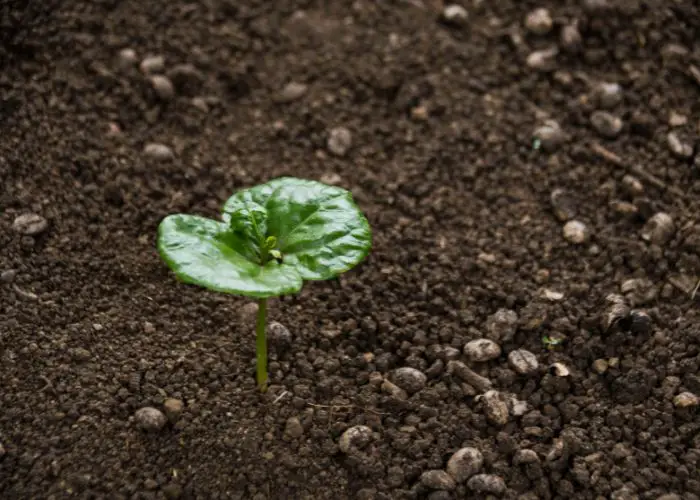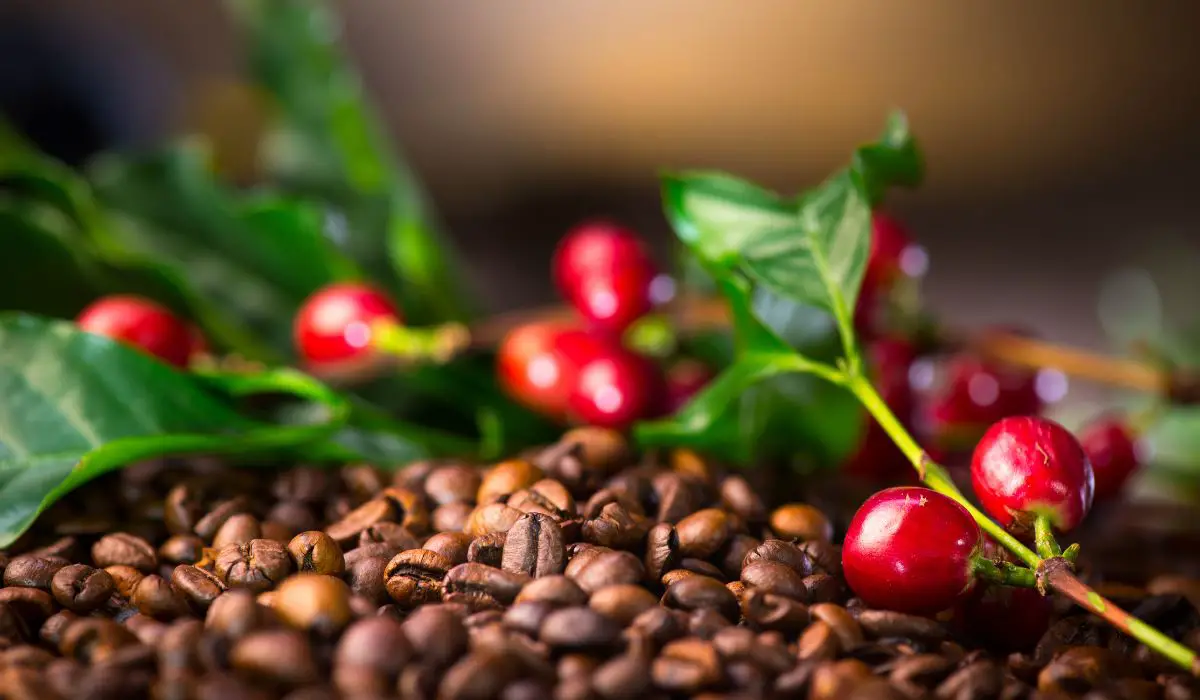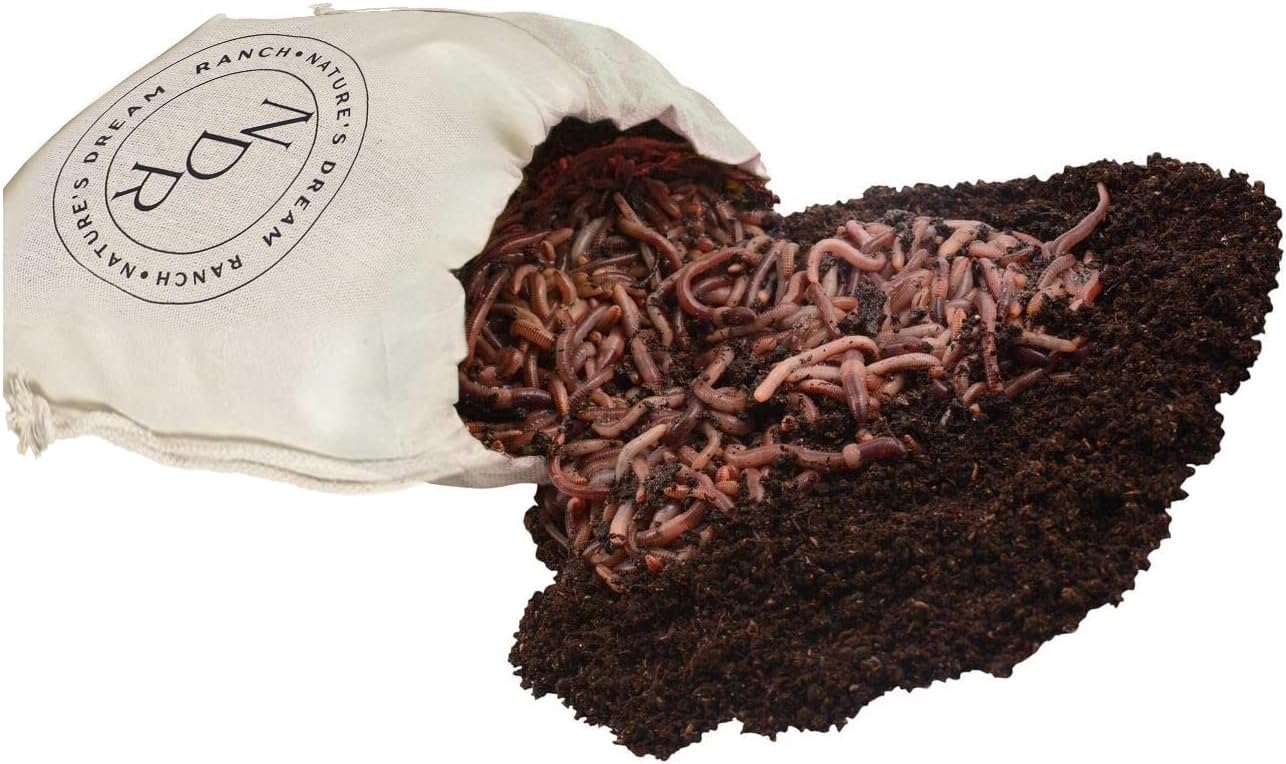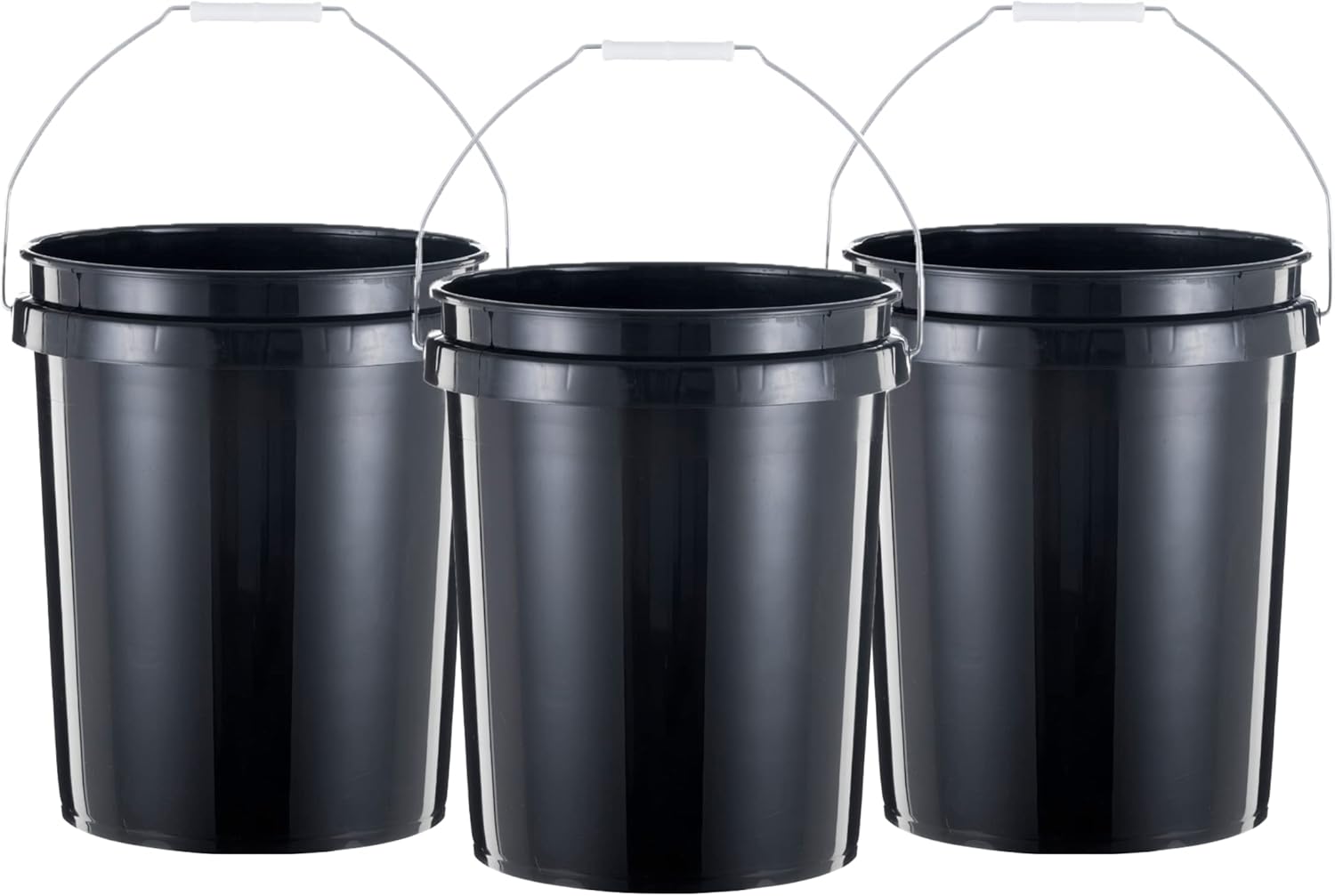Last Updated on July 27, 2022 by Griselda M.
Spent coffee grounds are an excellent fertilizer. Globally, about 10 million tons of coffee are produced and consumed a year. Most of this becomes spent coffee grounds – and these are an excellent organic soil amendment. Let’s find out how to use coffee grounds in the garden.
What Do Coffee Beans Have That Makes Them A Good Fertilizer?
If we take a look at any seed it is essentially a little packet of nutrients with a potential plant in it. The germination process converts these nutrients into a plant. Coffee beans are killed to turn them into coffee – this means that the nutrients in the actual bean do not get released to grow a plant.
Caffeine is a poisonous alkaloid that coffee plants place in their seed to protect it. For humans and various birds and cats, this alkaloid poison stimulated the central nervous system and makes the consumer a bit high. In this regard, coffee is a popular stimulant and enjoys a global cult following. When we make coffee we perform an extraction that uses various forms of heat, water, steam, and so on to extract mainly flavors and caffeine and related stimulants from the coffee grounds. Most of the coffee bean itself is not extracted into a cup of coffee. This means that coffee grounds contain pretty much everything that the coffee bean would have needed when it was going to grow, minus the little bit we extracted when we made our cup of coffee.
Coffee beans are a rich source of nitrogen (N), phosphorous (P), and potassium (K). When we look at a typical fertilizer, manufacturers normally give it an NPK ratio eg. 3:2:3. Coffee grounds, based on my calculations range from a 3:1:2 to a 2:3:3 or so fertilizer depending on whose analysis you look at. The variation is understandable because there are many ways to make coffee, different types of beans, and a host of other factors that will affect the nutritional content of the grounds.
In addition to the above macro plant nutrients, coffee contains a range of micronutrients – these are nutrients that plants need in smaller quantities to survive. Magnesium, calcium, iron, and zinc, among others, are also present.
In addition to being a source of nutrients, coffee contains many other compounds that can provide energy to bacteria, fungi, and creatures in the soil that help maintain soil fertility. Part of the process of roasting coffee assists in the development of carbon compounds that will accumulate in the soil. Building up soil carbon is a key part of building healthy soil.
Read more about Coffee In Plants And The Benefits They Bring
Is Coffee For Plants As Fertilizer Good Or Bad?
Yes, it is an excellent soil amendment. Here are a few things to consider:
- Coffee is a source of soil nutrients – we have covered this already, but I want to highlight it again
- Coffee provides nutrients to fungi – fungi are very important for overall soil health and the beneficial fungi that enjoy degrading coffee also protect the roots of your plants from less beneficial fungi that can hurt plants.
- Coffee is unattractive to slugs and cutworms and beetles. My garden has all three in abundance. I often put a scoop of coffee grounds around the base of seedlings I plant. There is nothing worse than coming to see how your new transplants are and finding they have vanished (slugs) or been chopped off at the stem (cutworms). Coffee (and wood ash) help to stop both of these problems.
- Coffee boosts earthworm populations. I try to have as many earthworms in my garden as possible. Some people have worm farms and put worm wee on their plants. I try to have a worm garden, so the benefits of the worms are spread everywhere. They absolutely love coffee grounds – and get a bit wired on it! You will find that red wrigglers in a patch of coffee grounds are red very wrigglers.
- Coffee can be used to suppress weeds. If you place a one to two-inch thick layer on the surface it acts as a mulch. I personally do not like to do this as I find it sometimes forms a cake on the surface and inhibits the flow of air into the soil. I much prefer a leaf mulch (I am a mulch fanatic). If you want to mulch with coffee place a layer of it around your plants and put leaf mulch on top of that – this helps the earthworms pull the coffee grounds down into the soil. Trust me – once your earthworms are healthy, they can pull 100 lb of coffee mulch into the soil in a few days!! It is quite remarkable.
Where to Source Coffee Grounds
I wear several hats in life, and sometimes one of those is to share knowledge with you dear reader. I also consult in the industrial agricultural industry, and what one realizes is that everything is about scale.
When you make a cup of coffee here and there, you produce a little tablespoon of spent grounds. These are of some use for a pot plant, but in terms of changing the direction of your garden, you need volume. Luckily it is easy to source coffee in large volumes.
Restaurants and Coffee shops
Find your local restaurants and coffee shops and leave a few 5-gallon buckets (with lids) and your name and telephone number written on the bucket and the lid.
I normally leave 4-5 buckets and they call me when they are full and I replace them with 4-5 empty buckets. You will be amazed at how quickly this adds up in volume. I use the coffee grounds for the legal research I do on growing Cannabis plants (it is an excellent fertilizer for these) as well as growing shiitake, lion mane, and certain other mushrooms. Naturally giving the people at the coffee shop some green peppers, tomatoes, spinach, mushrooms, possibly cannabis, and so on ensures that they remember you and keep calling every time the buckets are full. Trust me – the last plant really helps a lot here.
Coffee For Plants Myth Or Not?
In this case, we are referring to actually making some coffee and either spraying it on your plants or watering the soil with the coffee. Let’s first have a look at the common sense bit of what we are doing – there is no logical reason to use new fresh coffee. Use spend coffee grounds and soak these in boiling water and then use this extract to make a foliar feed.
If you spray this liquid on and around your plants it chases quite a few pests away. I have found that it seems to help with powdery mildew, but this is really anecdotal and not something I would ever put my name on scientifically. In my garden in mid-summer, it is quite wet and humid and some plants start exuding things – the coffee seems to inhibit the growth of these exudates.
I think that there is a lot of mythology on the internet – reading some papers suggests a benefit to spraying coffee on your plants, and others suggest it can have a negative effect. I think it is important to use a bit of common sense and just find out what works in your area. There is no golden bullet in reality, so if anybody comes and tells you how “absolutely amazing” something is, treat it with suspicion! Spraying diluted coffee on the leaves and soil around your plant should not hurt – but don’t go and spray some solution that is so dark it looks like engine oil – this will probably just burn your plants.

Can Coffee Help Plant Growth?
According to one study, caffeine did not enhance the growth of plants when applied to tomato leaves. There appears to be a certain amount of mythology on the internet that uses the logic that coffee is a stimulant for humans therefore it will be for plants. Coffee is an alkaloid toxin that coffee plants use to protect themselves against creatures that have nervous systems. Plants do not have nervous systems, and neuroactive alkaloids will consequently not stimulate the plant to be full of energy. In fact, there is evidence to suggest that caffeine actually inhibits the germination of seeds.
However, coffee for plants in the form of beans is a good fertilizer. Coffee contains a high level of nitrogen and phosphorous and can help to grow healthy plants. Coffee beans are also high in potassium, which enhances plant growth.
How To Use Coffee For Plants As Fertilizer?
There are many ways to use coffee for plants. It can be added to the soil or used directly. Coffee grounds can also be sprinkled around plants to boost growth and prevent mold. One thing is certain; using coffee grounds as a fertilizer for plants is a smart and inexpensive way to add nutrients to the soil without the hassle of buying expensive products. As mentioned above, leaving a few buckets at restaurants and coffee shops, with your phone number on them will result in a constant stream of coffee grounds that you can use instead of expensive fertilizer.
Conclusion On Coffee For Plants As Fertilizer
Coffee grounds are an abundantly available, inexpensive natural fertilizer. Collecting this from restaurants and coffee shops will probably keep the waste out of landfill sites and save you a lot of money in fertilizer. The benefits in the long term are that you improve your soil carbon, build up humic substances and encourage soil microbes and organisms. The increased soil health will not be immediately apparent, as these processes are slow. As your soil improves and gets healthy, you will see year-on-year growth. The soil also gets better at absorbing coffee grounds as the earthworm population increases. I do think the earthworms get a bit addicted to caffeine…..
FAQ
What do coffee grounds do for plants?
According to recent scientific research, coffee grounds are an excellent source of nitrogen, phosphorous and potassium. They also provide micronutrients. The coffee grounds feed your soil microbes and organisms and build up soil carbon. All of this is good for plants.
Can I pour coffee on my plants?
Yes. If it has cooled down. It may help a little with inhibiting certain pests, and, as with so many foliar feeds the results before and after are subject to observer bias. But a dilute coffee solution added to leaves is good.
How to use coffee grounds for plants?
You can use it as a mulch or actually mix it into the soil. If you do use it as a mulch I find that it really helps to put leaves on top of the coffee mulch. This stops the mulch developing a crust and also provides shelter for the earth worms who will quickly eat the coffee ground mulch and pull it deep down into the soil.
Which plants do not like coffee grounds?
There is a myth that coffee grounds make the soil acidic. The range of pH of coffee grounds can be anywhere from about pH 5-8. Many of the acidic compounds that can develop are temporary organic acids that will be quickly metabolised in the soil. I personally have not found a plant in my garden that does not benefit from coffee grounds. I do grow mushrooms on the grounds first, but that is an aside.
Learn more about The Best Fertilizer for Cactus and Succulents
Branko is the world‘s most enthusiastic gardener! He is always on the hunt for the perfect flower, bush or tree to add to his ever–growing garden. He is known for his love of all things green, and his passion for nurturing the plants he grows is unmatched. He loves to get his hands dirty and can often be found humbly tending to his garden at all hours of the day. Branko is the go–to guy when it comes to gardening advice – he is always happy to share his knowledge and wisdom with anyone who will listen. He also loves to play pranks on unsuspecting visitors, so beware if you enter his garden!




